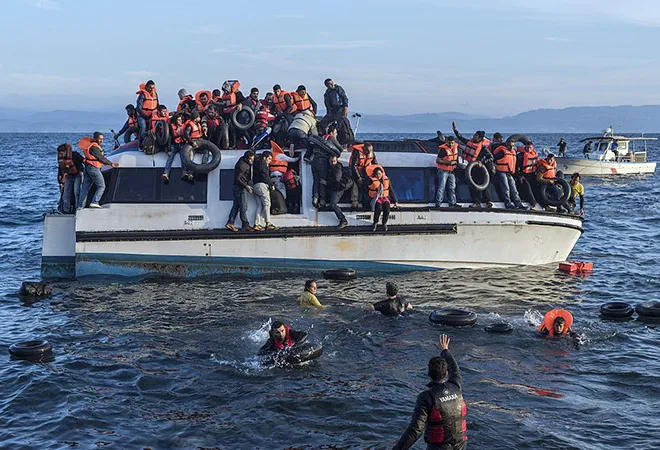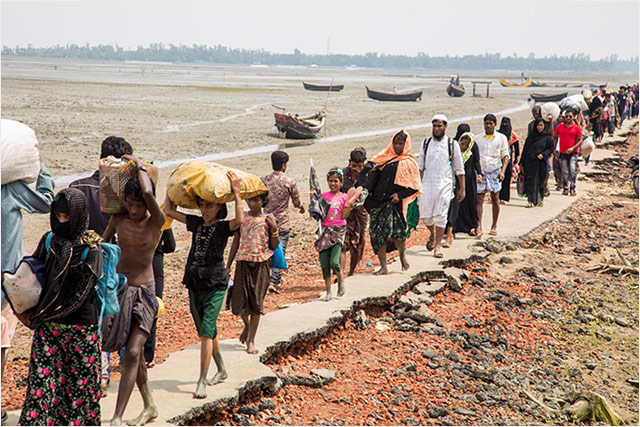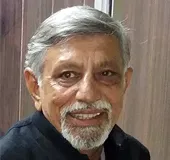-
CENTRES
Progammes & Centres
Location

War, ethnic cleansing and droughts create refugee movements, compelling hordes of suffering humans to move from their permanent residences, seeking shelter, food and security to life. In reality, no one desires to leave his place of residence and become a refugee in an alien land, irrespective of present difficulties or benefits it may provide in the future. However, wars and increased terrorism in West Asia and Afghanistan, drought, wars and terrorist attacks in Africa and the domestic issue of Rohingyas in Myanmar have led to the latest mass movement of population, solely seeking to survive. The movement from West Asia to Europe, yet continuing, is the largest migration since the World War-II. Majority of those fleeing are Muslims.
Many refugees lose their lives or limbs while attempting perilous journey across seas, desolate regions and turbulent borders laced with minefields. Many suffer at the hands of ruthless gangs seeking to exploit them while attempting to flee and many more are cheated and left to struggle for life in overcrowded and broken vessels. While hundreds are being rescued at sea, similar numbers perish attempting to cross it and hundreds of thousands are interned in detention centres and forced to return.
Despite all this, the migration continues unabated, forced due to circumstances including hunger, persecution and security concerns. Those fleeing the wars in West Asia, Africa and Afghanistan seek safety in Europe while those fleeing from Myanmar seek the same in Bangladesh and India. Most cannot even speak the language of the countries they aim to reach, but still continue to attempt the perilous journey.
Europe in the past accepted migrants mainly because it had a shrinking population, felt it needed to do its share for those suffering as also felt responsible for its erstwhile colonies and possessed an economy strong enough to absorb them. However, with the passage of time, it has begun to realise the follies of its actions. Its demography has begun to change, internal threats have increased, and its traditional culture is being challenged from within. The migrants have begun sharing and utilising the limited resources of the state, without contributing much, thus depriving the permanent residents of the same. With declining economies, the state can no longer provide as it had done earlier, hence renders most migrants jobless.
The change in demography is now nearing close to 10 percent in most countries of western Europe, leading to the creation of ghetto type colonies. These colonies, located in most major cities in Europe, are no-go zones, dominated by migrants, legal or illegal, where locals are almost prohibited from entering and the police only enter in force. These localities follow their own laws and life style, vastly different from the host nation.

The change in demography has on occasions resulted in existing laws being amended to suit the culture of migrants, to the extent that even the nature of meat being served in schools should not harm religious sentiments. In Germany, a minister came under fire for seeking holidays to mark Muslim religious events. Countries like Sweden even provided its migrants with free housing, education, health care and funds for daily living.
Almost all terror strikes launched in Europe in recent times has been by migrants, influenced by the Islamic State (IS). European migrants have been amongst the largest group fighting for the IS in Syria and Iraq and are an internal threat on return. With high unemployment amongst them, most take to a life of crime. This has adversely impacted local society. The resentment against accepting migrants is on the rise and so is the rate of hate crime.
Countries of eastern Europe erected fencing for the first time to keep migrants at bay. They refused the European Union (EU) diktat for accepting their share of the migrants. In Austria, the right wing political party won the elections solely playing on the fear of increased migration. The emergence of the far right in German politics, after almost a gap of 50 years, was the result of Chancellor Angela Merkel’s immigration policies and the fact that she would need their support to form her government, has compelled her to reduce planned immigration quotas to almost 50 percent.
The very existence of the EU is threatened as countries refuse the EU diktat of accepting refugee quotas. Europe is now waking up, after decades of being soft and accepting, fearing a change in its culture and demography. India needs to learn from Europe, where changing demography, increased unemployment amongst immigrants and soft policies has left the continent tottering.
India too had been soft for decades, permitting illegal migrants from East Pakistan and subsequently Bangladesh to settle in and change demography in Assam and in districts bordering Bangladesh in West Bengal. Assamese and Bengali are being spoken almost equally throughout Assam. In November 1998, late Lt. Gen. SK Sinha, as the Governor of Assam, had written to the Centre: “It (illegal immigration) poses a grave threat both to the identity of the Assamese people and to our national security.” But his advice was ignored. The insurgency in the State is the fallout of the illegal migrants.
In West Bengal, the bordering districts to Bangladesh are witnessing a fast-changing demography and enhanced law and order issues. Riots in Kaliachak in Malda district, Barisat in North 24 Parganas and a blast at a bomb making unit in Birbhum district are recent examples. Census reports are an indicator of the presence of large scale illegal migrants in border districts.
The latest is the move of Rohingyas into India. While a political debate on their repatriation continues, the issue is also before the Supreme Court which has hinted at the need for a balanced approach from the Centre – between the state security concerns and humanitarian considerations. Their repatriation is also becoming a politico-religious issue, with vote banks as the final aim.
The fact that the majority of known Rohingyas have settled around Jammu should ring a warning bell to security agencies. Earlier, Jammu accommodated Bangladeshis seeking to migrate to Pakistan, who after failing, settled around the region. Now it is the Rohingyas. Is the Rohingya movement to Jammu with a desire to attempt crossing into Pakistan (on religious affinity), accidental or planned by those seeking demographic change, is a matter of investigation.
The Jammu region, comprising the area south of the Banihal pass, has a very delicate demography. Mass movement of Rohingyas would over the years turn the demography, unless checked now. The fact that they are mostly unemployed, possess meagre resources while maintaining large families, opens their exploitation to anti-national elements, enhancing security risks. Their settling on the outer fringes of the city increases dangers within.
India, akin to Europe, has similar problems, shortfall of resources and employment avenues, with which it cannot cater to its own populace. The quantum of educated unemployed is on the rise. To add to its woes would be thousands today and lakhs tomorrow of illegal migrants seeking to absorb the same limited resources. This would enhance alienation within society, increase friction between religions and add to internal security problems.
Europe has learnt and is rapidly changing its policies against illegal migrants, despite calls from international organizations. India, should adopt their lessons, rather than suffer today and seek to change its policies once damage has been done, Assam being a prime example. It is the citizens of the country, who should hold the hand of the government as it seeks to provide for its legitimate citizens rather than illegal migrants.
The views expressed above belong to the author(s). ORF research and analyses now available on Telegram! Click here to access our curated content — blogs, longforms and interviews.

An alumnus of the National Defence Academy Major General Harsha Kakar is a graduate of the DSSC LDMC and the National Securities Studies Course at ...
Read More +